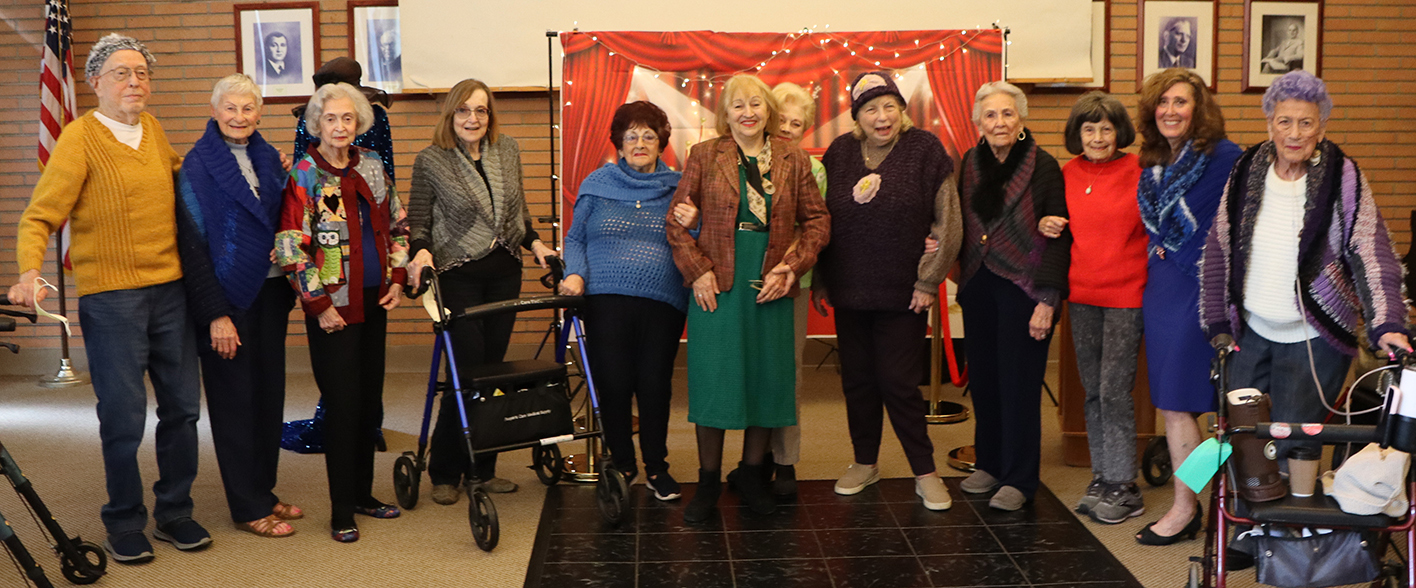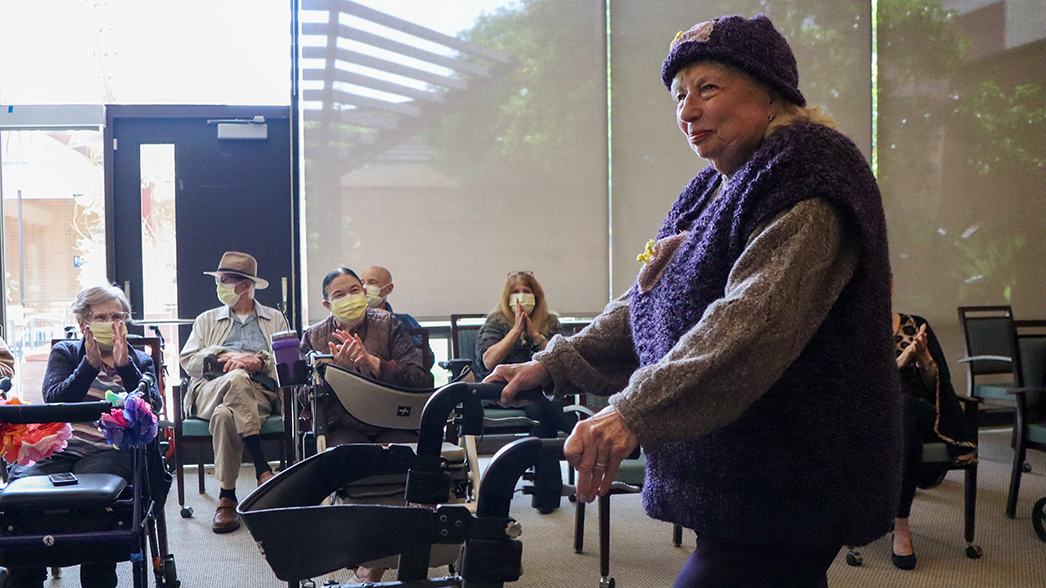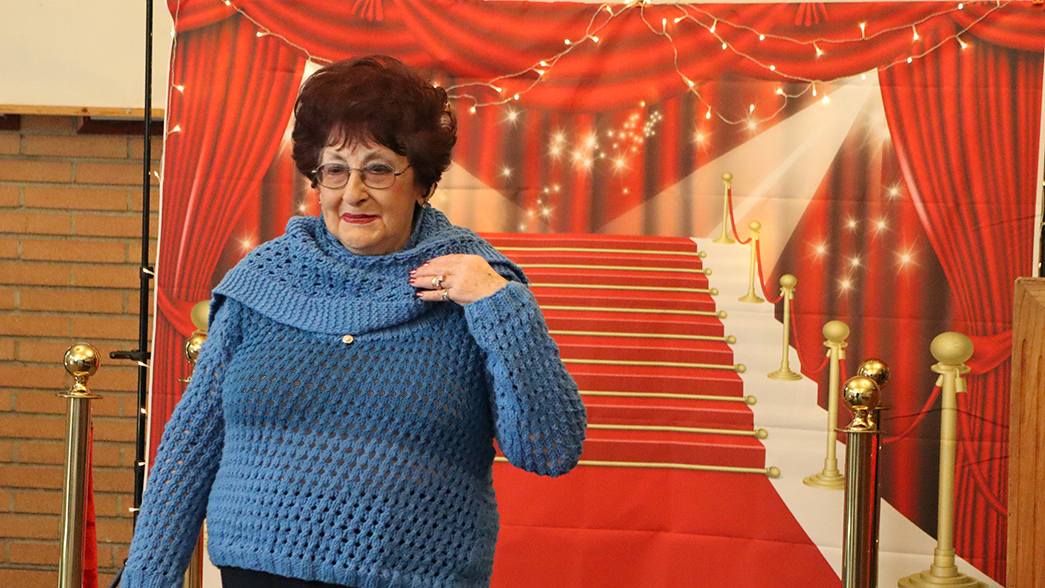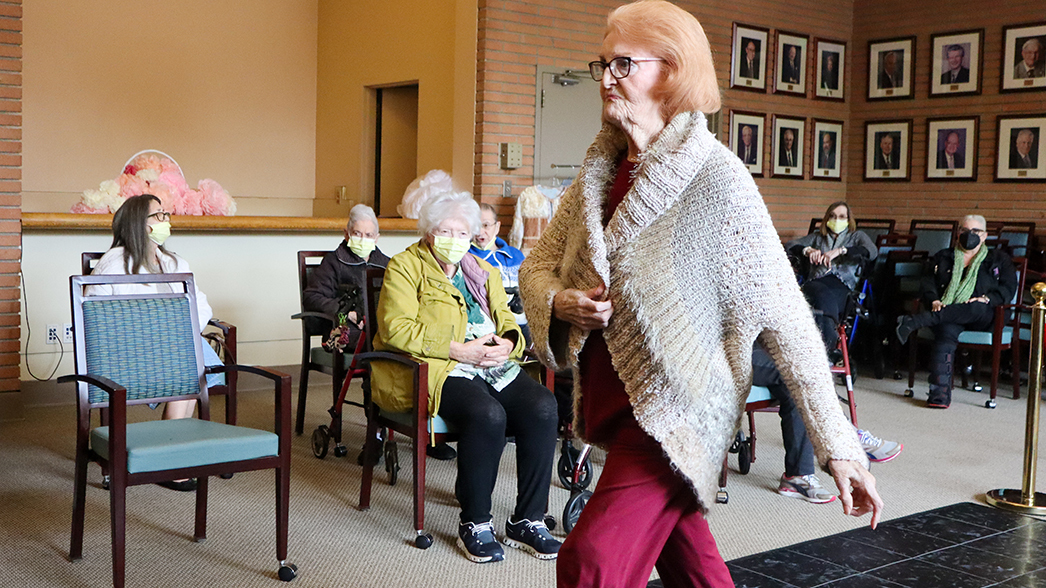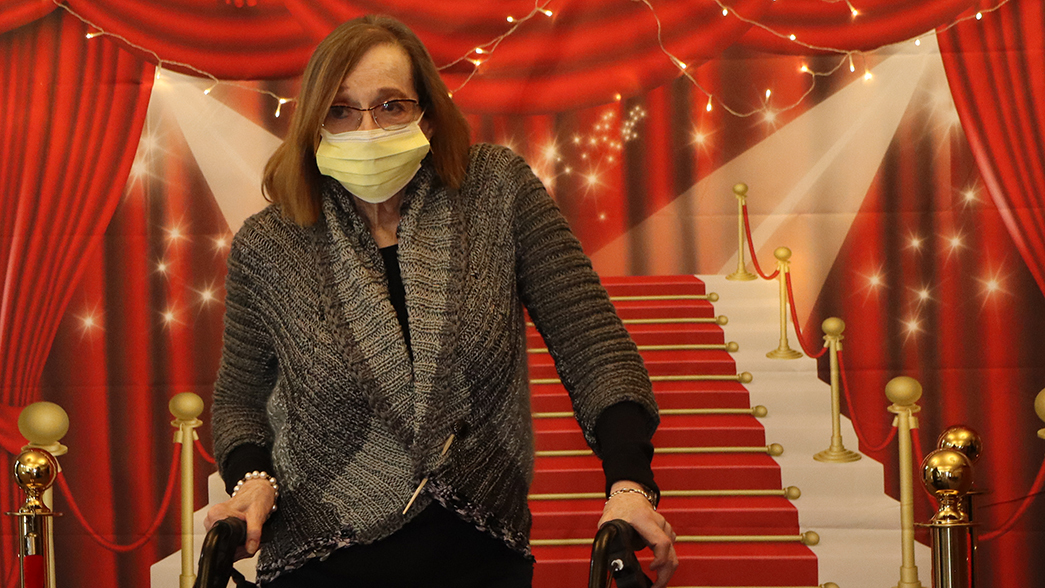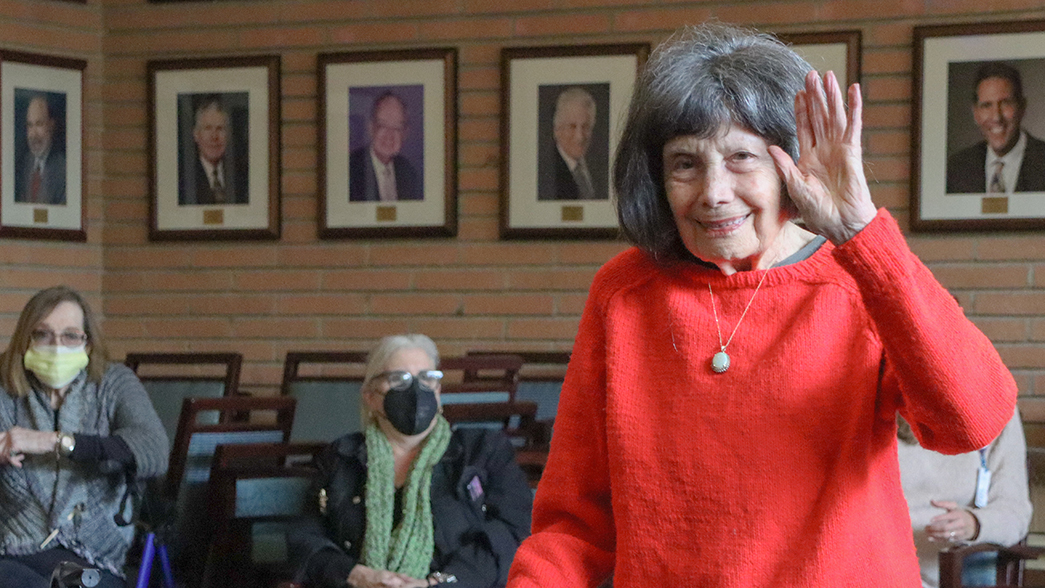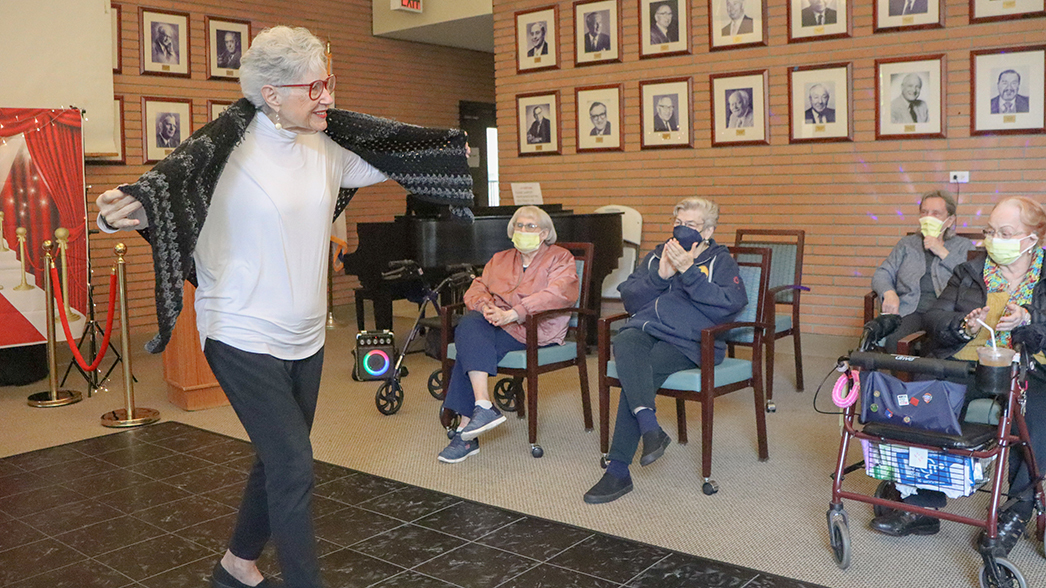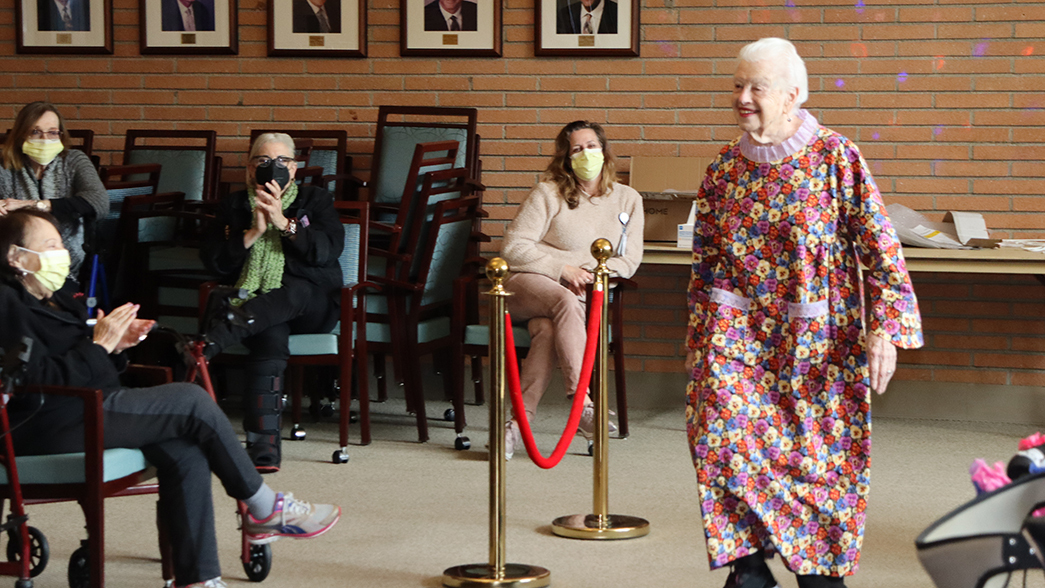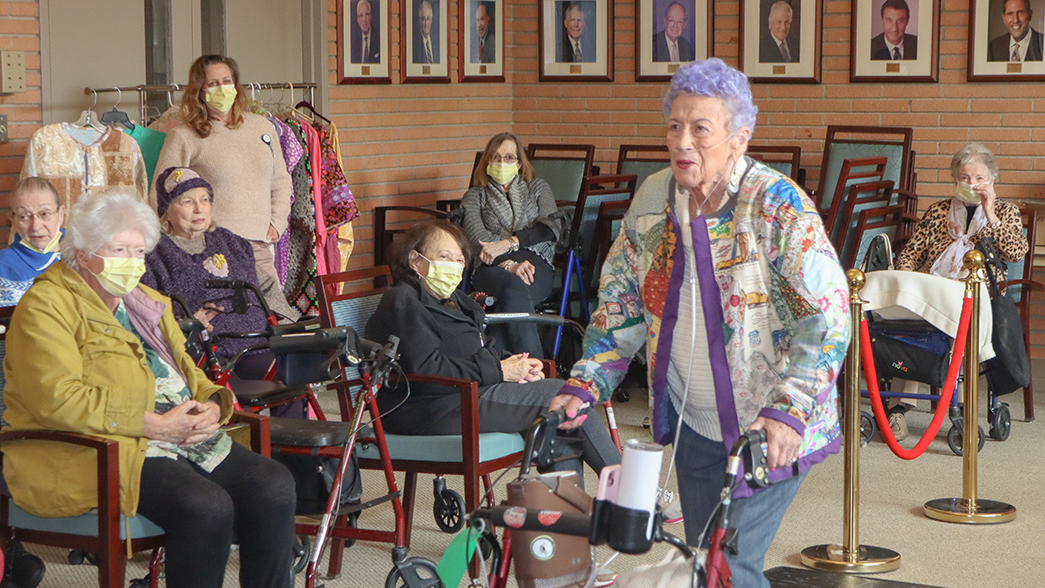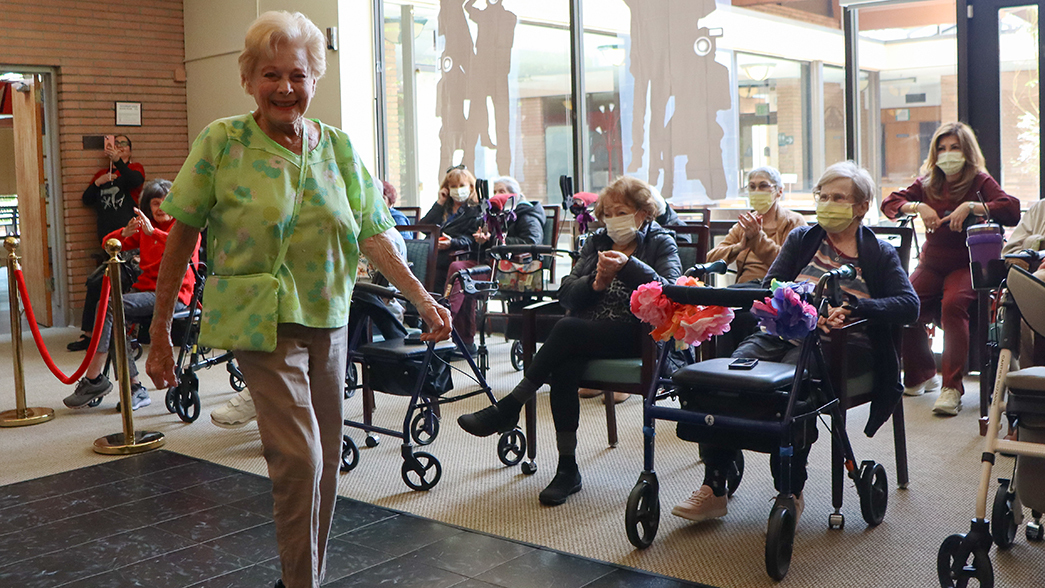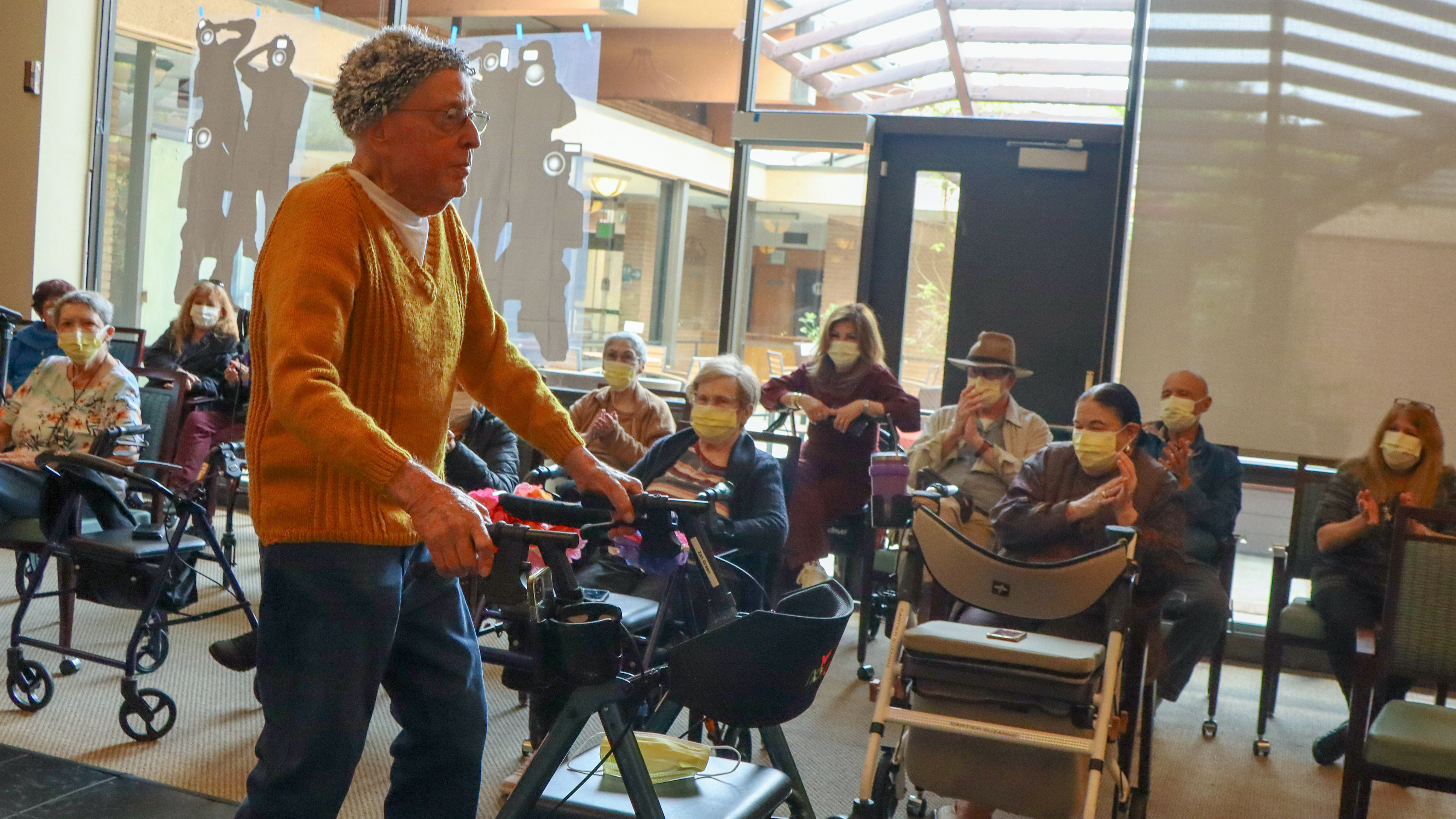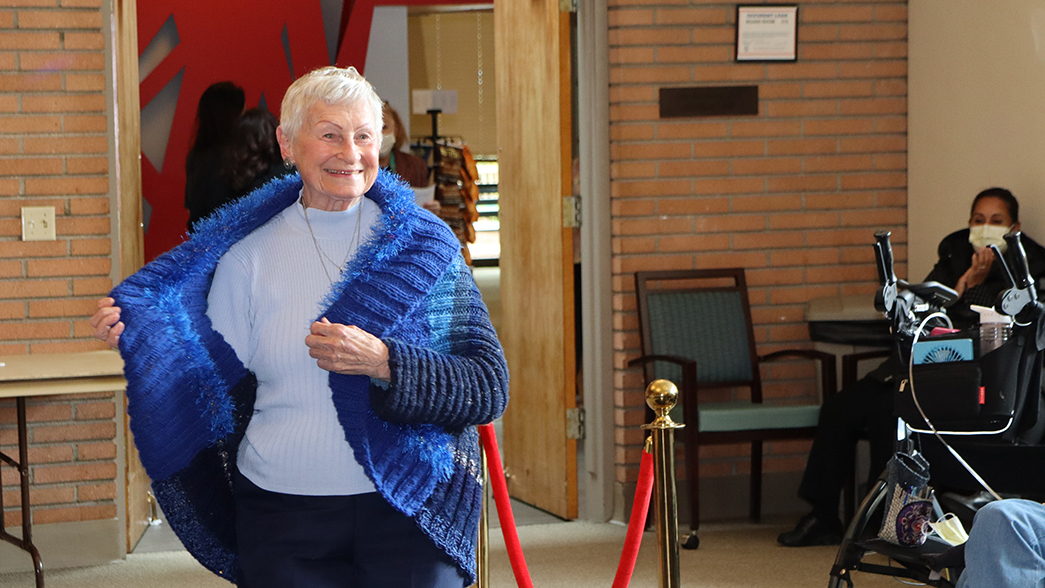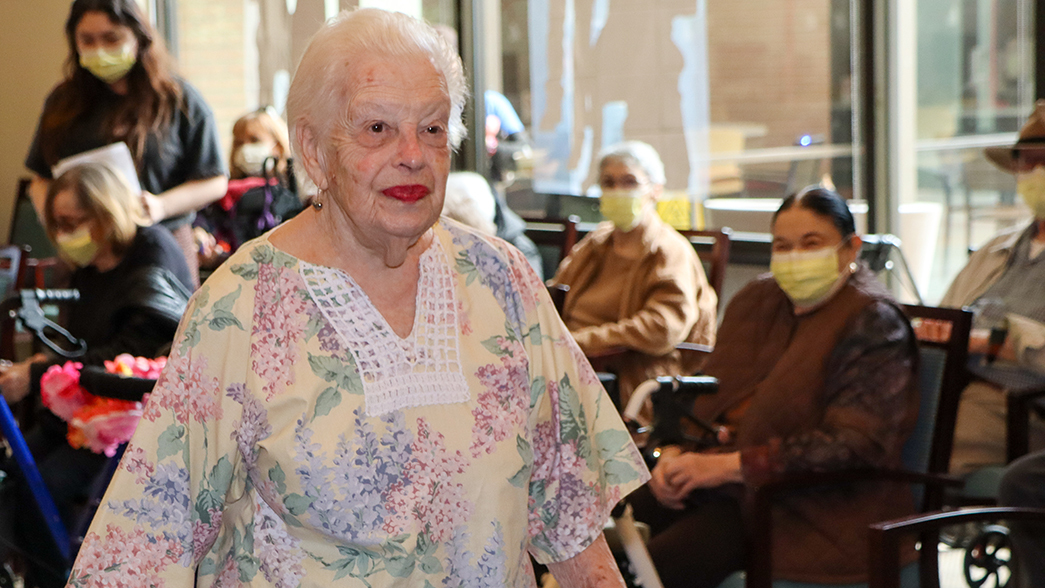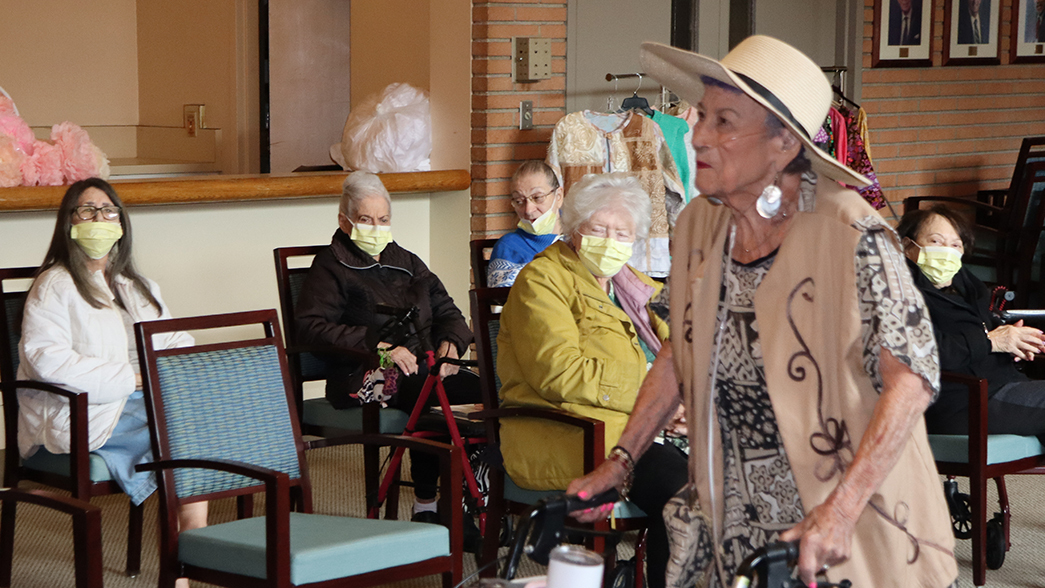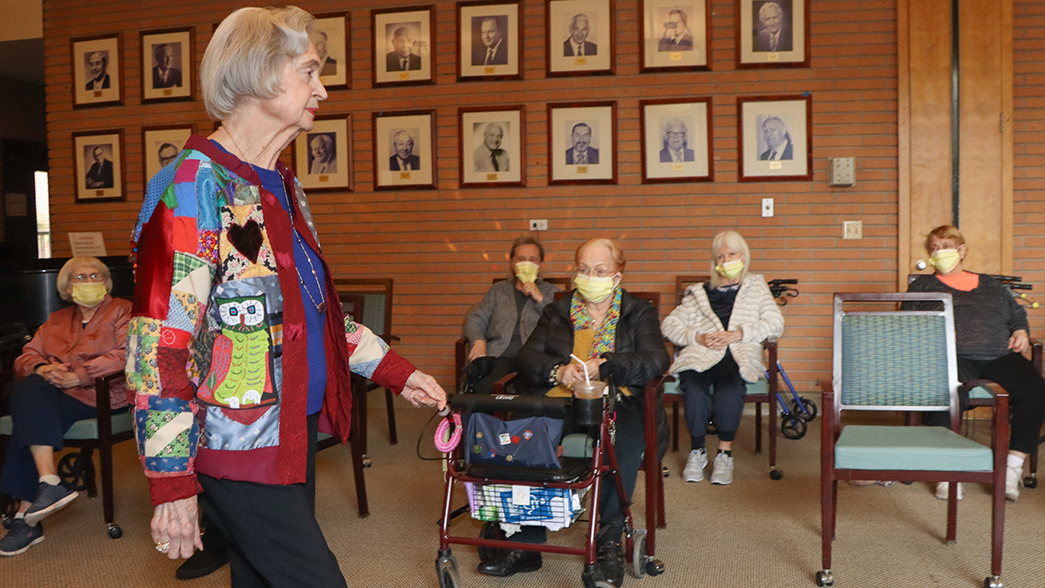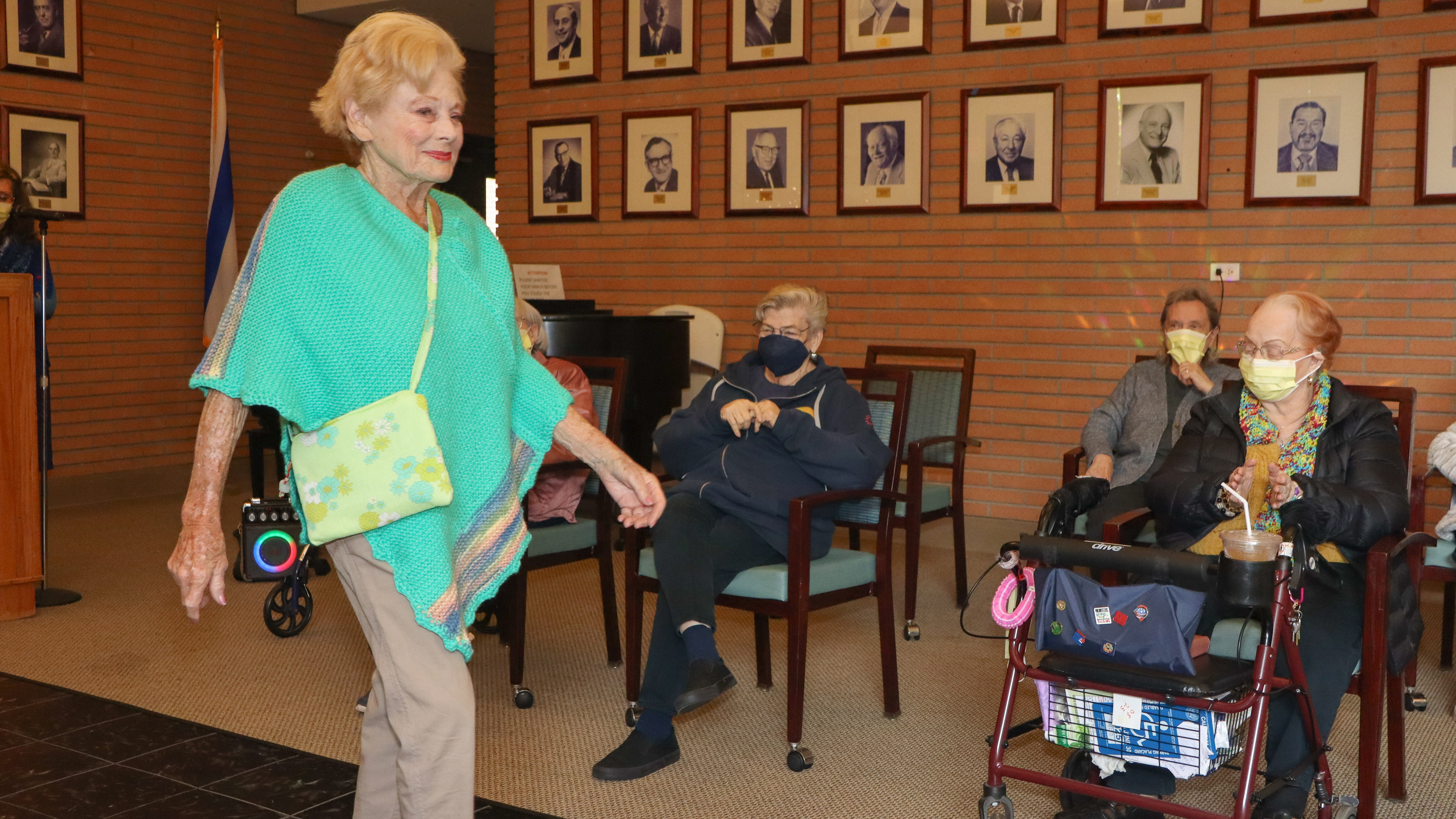Crafting Community: Radka Falk Nurtures Creative Inspiration at LAJH


Crafting Community: Radka Falk Nurtures Creative Inspiration at LAJH
At Los Angeles Jewish Health (LAJH), we are enormously proud of the dedicated staff members who help care for our beloved residents. Each person on the team brings their own unique talent and history to the organization, together weaving a beautiful tapestry of care, compassion, and love.
Tapestries are right up the alley of Radka Falk, director of LAJH’s popular Arts & Crafts Room, located on the Eisenberg Village campus and a key component of the Lifestyle and Enrichment Department. For nearly 20 years, Radka has been a supportive, engaging, and steadying force at LAJH, helping residents channel their creative energies as they make extraordinary objects of art.
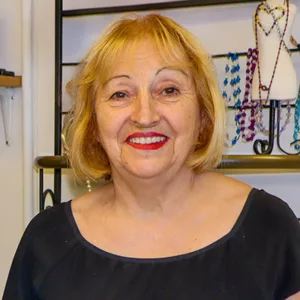
A native of Bulgaria, Radka emigrated to the United States in 2000—a single mother of two in search of better economic opportunity.
“I worked for a big newspaper and also as a teacher in Bulgaria, but once my son was accepted to university there, I knew that, even with multiple jobs, I wouldn’t have been able to pay his tuition,” she recalls. “It was time for me to make a change.”
When she arrived in the U.S., Radka found employment as a private caregiver. In addition to introducing her to her future second husband (a friend of the owners of the caregiving company), the job enabled her to develop critical skills for working with seniors.
“One of my clients had Alzheimer’s, and when she was accepted at LAJH, I came and stayed with her for a time,” she says. “The wonderful people I met there offered me a position helping with activities, and that was almost two decades ago. I’ve never looked back.”
What many do not know about Radka is that she is an accomplished writer and painter who has authored multiple well-received volumes of poetry. Securing her position at LAJH allowed her to combine her interest in the arts with her newfound abilities in senior care. Under her direction, the Arts & Crafts Room has become a beloved retreat for residents, many of whom visit several times a week. She shares her passion for textile-making and helps others create beautiful handcrafts, from sweaters and skirts to quilts. The participants also work with Radka to explore a wide array of other artistic mediums and to explore their culinary side by cooking delicious baked goods in the onsite kitchen.
“I love to knit and to sew, and I also love to help people,” Radka says. “In this job, I get to do both. I am so grateful to have found a home at LAJH.”
Both Radka’s colleagues and residents at LAJH say the appreciation is mutual.
“It is a pleasure working with Radka,” says Annette Weinberg, campus lifestyle and enrichment director for Eisenberg Village. “There’s something very special about her: She’s such a positive force and a loving person, and her creativity is just amazing. Whether someone needs a hem stitched or we’re seeking blooms to decorate the dining room, she always says ‘yes.’”
It’s a sentiment repeated again and again by all who know her.
“Radka and I have been close,” says resident Norman Garber. “It’s a pleasure collaborating with her because she’s so talented; there isn’t a thing she can’t do. And she is so compassionate and kind—always with a positive word for everyone.”
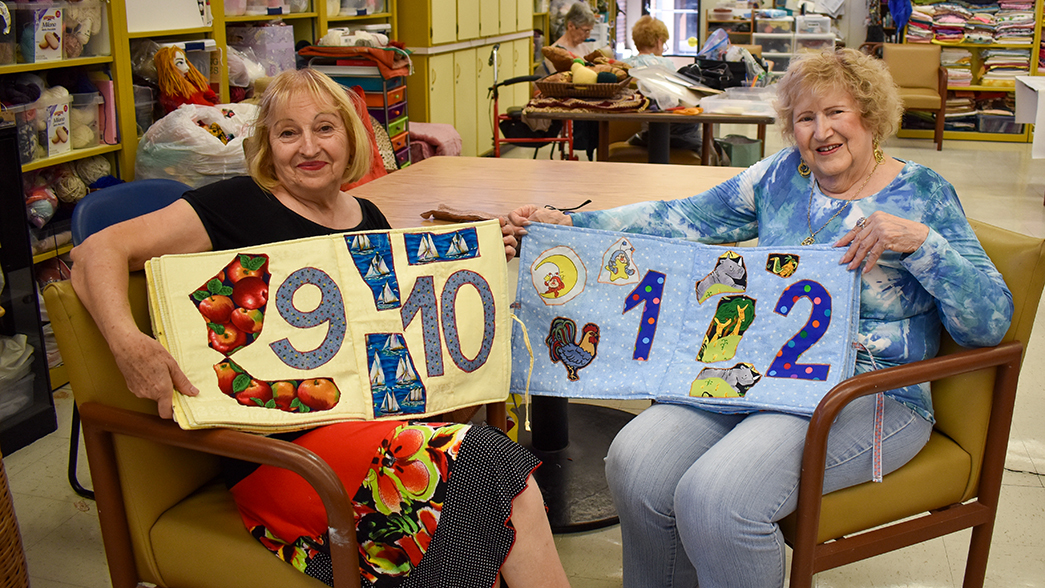
Radka’s cheerleading offers residents a big boost as they undertake new creative endeavors.
“She’s so fantastic at helping me explore my sewing abilities, and she helps me push the limits of what I can learn to do,” says resident Casey Joseph. “I love how understanding Radka is and how she can listen to your ideas, then figure out a way to make them real. It’s such a feel-good environment that I look forward to coming to Arts and Crafts five days a week!”
Arlene Bercu, another LAJH resident, is equally glowing in her praise.
“I knew at once after touring the Arts and Crafts Room that it would be my happy place,” she says. “Everything Radka does is original and creative, from the beautiful handbags down to the made-from-scratch mandel bread. I actually wore a dress she made me in our recent Purim play. I always tell her she should have owned her own couture shop!”
In March, Radka brought the world of high fashion directly to LAJH, working with Annette and the rest of the Lifestyle and Enrichment team to run a fashion show featuring clothes she has made for residents. The clothes were modeled by the residents themselves.
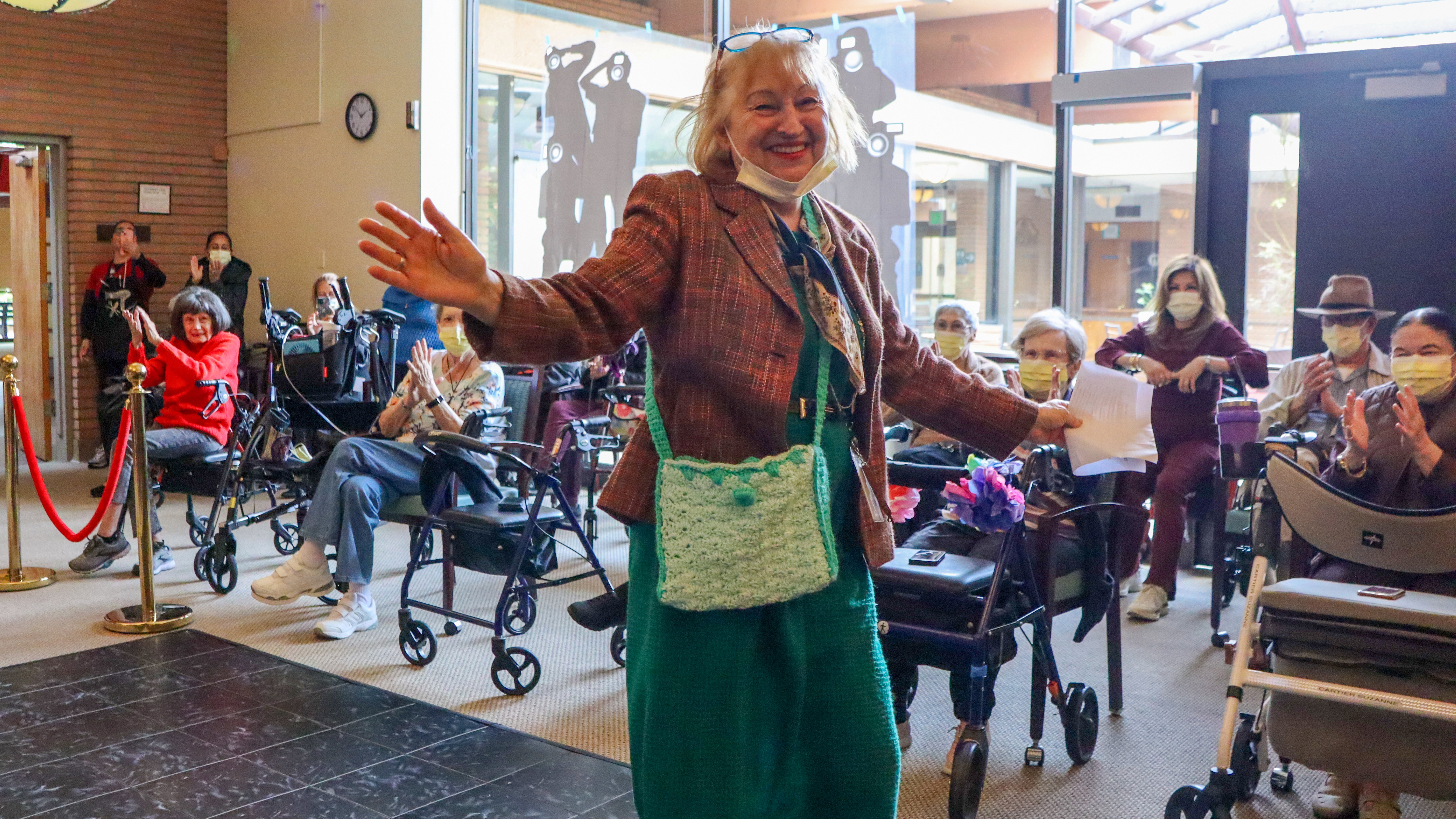
“We had a runway for our models, and nearly all of the women who spend time in the Arts and Crafts Room participated, including some who actually had careers as fashion models!” she says.
Whether coordinating a runway or supervising a cross-stitch, Radka brings her signature creativity, energy, and enthusiasm to every endeavor.
“I enjoy doing all this stuff, and it’s exciting because I am able to create something new every day,” she says. “I absolutely love this job.”
